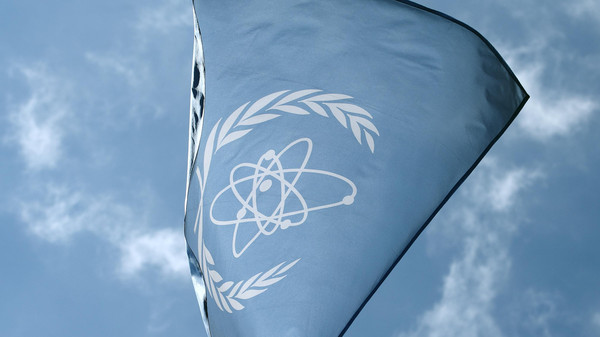
In contrast to Obama’s claim, PM, Netanyahu points out report that Iran’s stockpile of uranium is increasing
By HERB KEINON/06/03/2015/A day after US President Barack Obama told the Israeli public in his Channel 2 interview that Iran’s stockpile of very highly enriched uranium “is gone,” Prime Minister Benjamin Netanyahu said that in fact it is precisely those stockpiles that are increasing and very threatening to Israel. “There are reports now that Iran continues to grow its nuclear stockpile as the negotiations proceed,” Netanyahu said at the opening of a meeting with visiting New Zealand Prime Minister Murray McCully.
Netanyahu said if this development is added together with Iran’s continued development of long range ballistic missiles, its world wide terrorist web, its support for rocket attacks on Israel, its activities in Yemen, and the fact that it violates all Security Council resolutions dealing with it, then it all amounts to a serious peace and security challenge in the region. In contrast to Obama’s statement, the International Atomic Energy Agency issued a report last week saying that Iran’s stockpile has increased over the last 18 months, with the New York Times reporting that the stockpile has increase by some 20%. New Zealand is currently a temporary member of the 15-nation UN Security Council, and will serve as that body’s president for a month in July. New Zealand is expected to join France before September in proposing a resolution calling for the parameters of a two state solution, and a deadline for the establishment of a Palestinian state and an Israeli withdrawal from the territories. Netanyahu wished McCully “a lot of luck” heading the Security Council. “The main thing we have learned,” he said “ is that peace is achieved as we did with Jordan and with Egypt through direct negotiations between parties, and not by fiat – it just doesn’t work that way. I hope it works, but it has to work through direct negotiations.”
U.S. Vice-President Joe Biden’s national security adviser: Iran deal ‘will reduce’ nuclear enrichment
(Reuters)AFP, Doha/ Wednesday, 3 June 2015/ A nuclear deal with Iran will significantly reduce Tehran’s enrichment capacity, U.S. Vice-President Joe Biden’s national security adviser told a conference in Qatar on Monday. Dr. Colin H. Kahl, speaking at the U.S.-Islamic World Forum in Doha, said the current deal being hammered out was the best on offer, despite many skeptical voices in the U.S. and elsewhere, including Gulf Arab states. “Under the deal we are negotiating… Iran’s enrichment capability will be substantially rolled back,” said Kahl. “The deal we are negotiating makes us and the region safer.”The ongoing talks to finalize a nuclear accord between Iran and world powers, including the United States, are deadlocked weeks ahead of a deadline. Negotiations at the weekend in Geneva, Switzerland, failed to bridge differences between Washington and Tehran, especially over the crucial issue of inspections of military sites. Other sticking points remain, including the possible military dimensions of the Iranian nuclear program and the demands by the P5+1 group for U.N. inspections of Iranian military bases. A deadline has been set for June 30 to reach a ground-breaking agreement that would see Iran curtail its nuclear ambitions in return for a lifting of crippling international sanctions. After three decades of enmity, any accord would pave the way to bringing Iran back into the international fold and potentially create fresh impetus to resolve a host of conflicts in the Middle East. On April 2, Iran and the “P5+1” — as the US and its partners are known — agreed to the main outlines of a nuclear deal, with Tehran agreeing to rein in and mothball large sections of its atomic program. But differences remain, with both the United States and Iran under immense pressure from hardliners not to make major concessions. Since the April 2 accord, technical experts have been meeting behind the scenes to overcome the remaining issues. But many of the decisions now need to be made at a political level. Following talks last weekend, U.S. Secretary of State John Kerry broke a leg while cycling but advisers said the accident would not slow the globe-trotting diplomat. Kahl said on Monday that “today” it would take Iran two-to-three months to produce enough fissile material for one bomb. But despite criticism he said a negotiated settlement was the best solution. “In the absence of comprehensive agreement to deal with this challenge and constrain Iran’s program, Iran would likely install and begin operating tens of thousands of fissile centrifuges in the near future,” he added. The forum is a three-day long conference involving politicians, policy advisers and academics from across the Middle East and the United States.



















